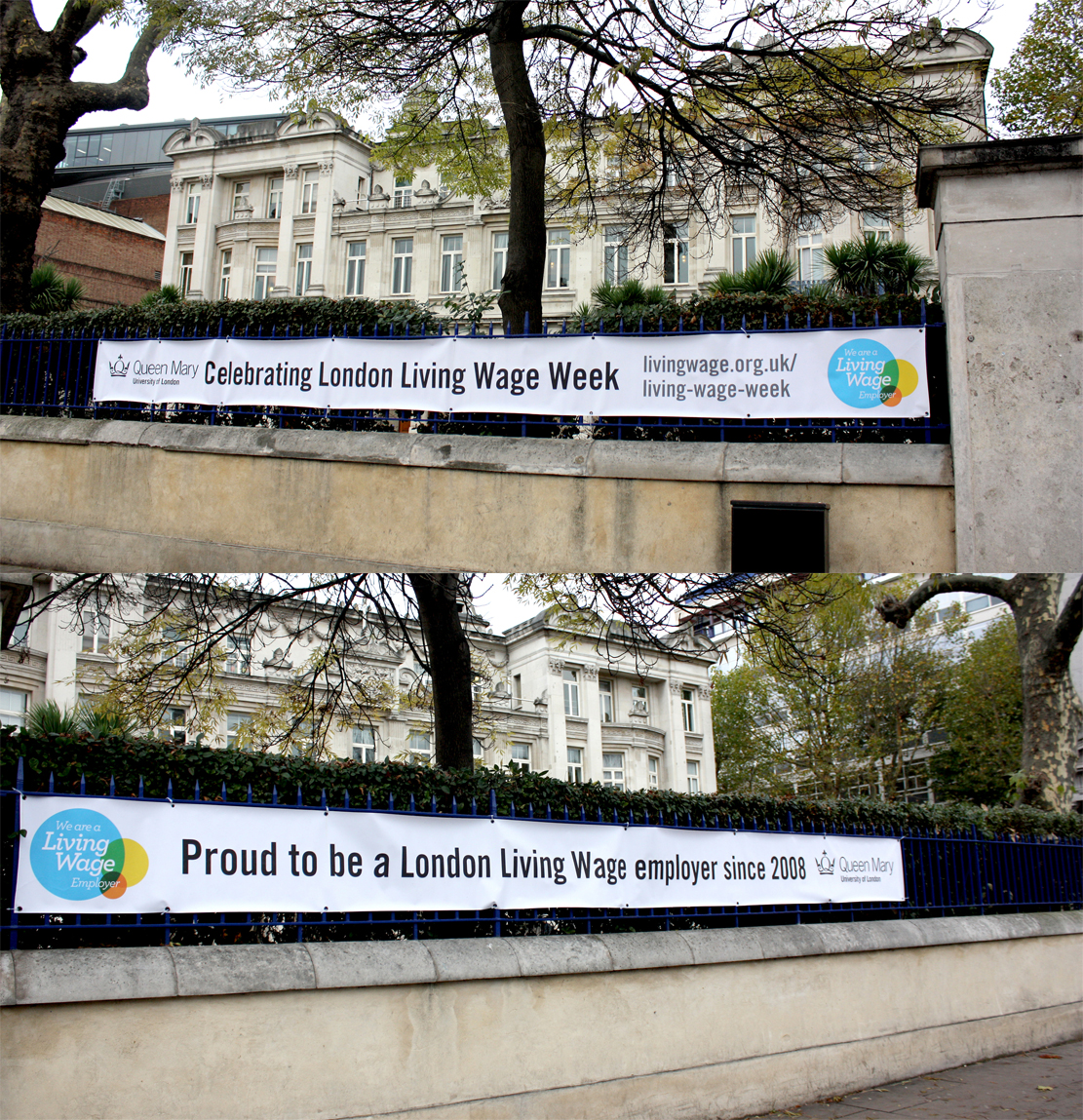Celebrating Living Wage Week
Sunday 5 to Friday 10 November is Living Wage Week, and Queen Mary is proud to be a Living Wage employer.

In 2008, QMUL was the first university in the UK to pay the Living Wage to all staff. We are also the founding and principal partner of the Living Wage Foundation, which was established in 2011 to recognise the leadership of employers who choose to pay a real Living Wage based on the cost of living, not just the government minimum.
Vice Principal (Public Engagement & Student Enterprise) Professor Peter McOwan said: “QMUL’s research work supporting the living wage was instrumental in the creation of the Living Wage Foundation, and I am proud to be part of a university which has been so supportive of this campaign. QMUL’s commitment to the living wage reflects our continued commitment to be a good neighbour to our local communities in east London.”
This year we are celebrating the Living Wage Week by sharing stories from three current students who have part-time jobs; they tell us what being paid the London Living Wage means to them, and about the impact it’s had on their lives.
Barbara Sikora
Annika Ramos
The London living wage was always a myth before working at the student union. Having worked part time in various jobs both in my home town and in London, I know the struggle of making ends meet with limited resources when employers do not pay enough.
As I am sure many people do, I always used to calculate expenses in comparison to how much I would have needed to work for it in order to figure out if it was worth buying or not. This would mean that I would have to sacrifice here and there just to afford daily life.
Now that I do earn the London living wage, that limitation is now erased. I can afford to go to the gym and take care of both my mental and physical wellbeing, something which wasn’t possible before. I can buy books for extra reading, thereby improving my grades. I can enjoy myself socially and not have to reject opportunities I cannot afford, increasing my social life.
All of this has meant that I now truly understand what the student union is for, improving student welfare, as proven by them awarding staff the London living wage.
Ammaarah Ravat
Before starting at QMUL, I’d never undertaken a job and hadn’t really required one either. Moving from a small Yorkshire town to metropolitan London came as quite a shock to the system; the number of immersive cultural sights quadrupled that of my home city and it seemed the cost of transport and comfortable living was unanimously extortionate throughout the city.
As soon as I settled into newfound university life, I realised quickly that getting a job was necessary to fund my extravagant endeavours to London’s many hot spots. My first point of call was my own Student’s Union and from some quick background research, it came to my knowledge that QMUL was the first UK university to implement the London Living Wage (LLW). I applied and received a kitchen job within the QMSU and I can say, with honesty, that I have benefitted entirely from the living wage that was introduced in September.
The increase in pay has meant the world of difference with my social engagements and family commitments; I can now make further use of the tube (as opposed to solely using the bus since it was the cheaper alternative) to commute wide and far, reducing overall transit times and extending the moments I spend with others; I feel happier about eating out in restaurants and purchasing takeaways as I can afford to treat myself with the additional money earned from my wages; I’m also able to adopt a healthier work-to-study ratio since I can commit to fewer working hours and earn the same as I would have done previously, supplementing more hours during the week for study which, as a second-year student, is crucial.
Prior to the implementation of the LLW, my wages were respectable, but I did feel, at times, I deserved a pay which reflected the tight demands of the job. Post-September, I was thrilled to discover I would be paid the LLW which ultimately meant: the tasks I performed were completed with increased productivity and efficiency; my attitude towards work was uplifted, genuinely looking forward to each working day and I felt truly valued in a workplace where my efforts are recognised.
I’m proud to be representing a body that recognises the well-being of its employees and can wholeheartedly vouch for its merits.
You can read more about how paying LLW uplifts society and improves productivity on our website.